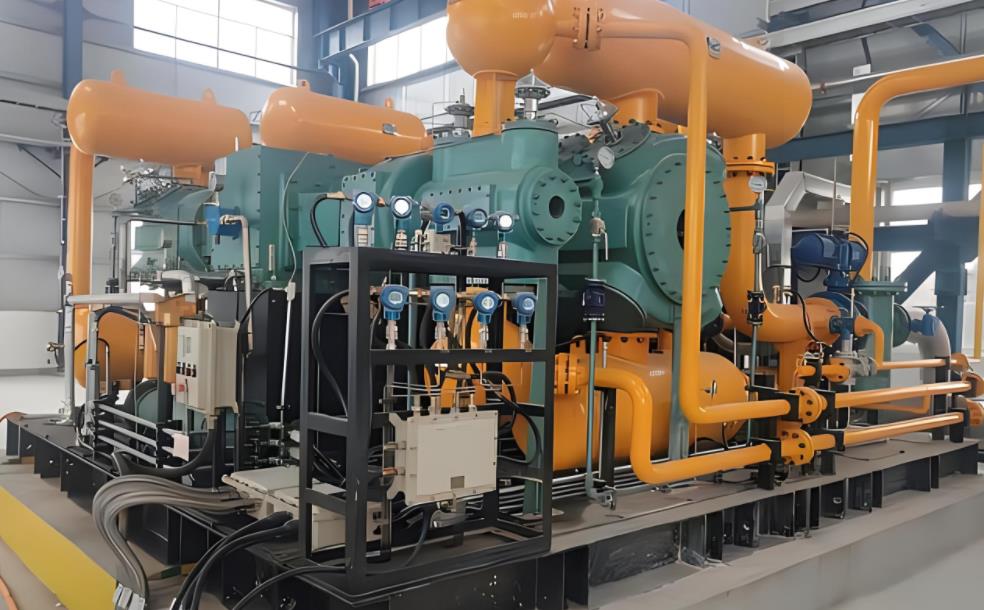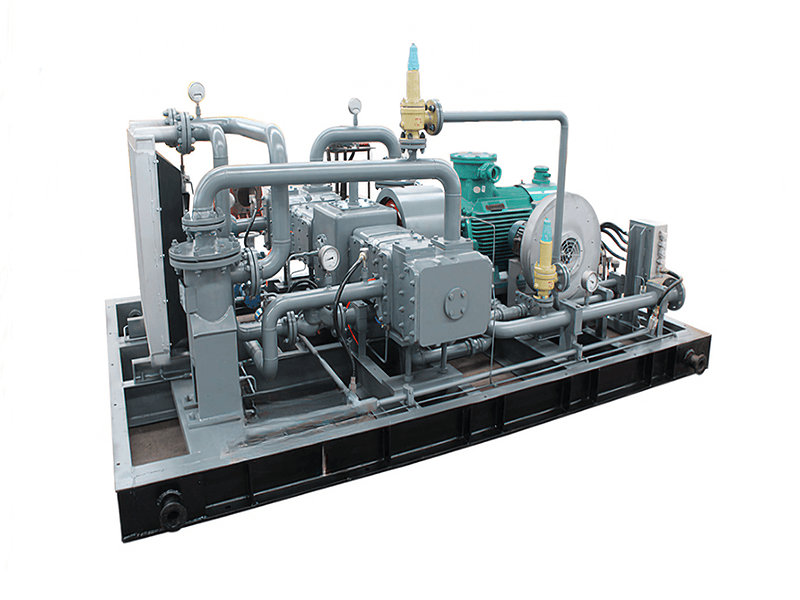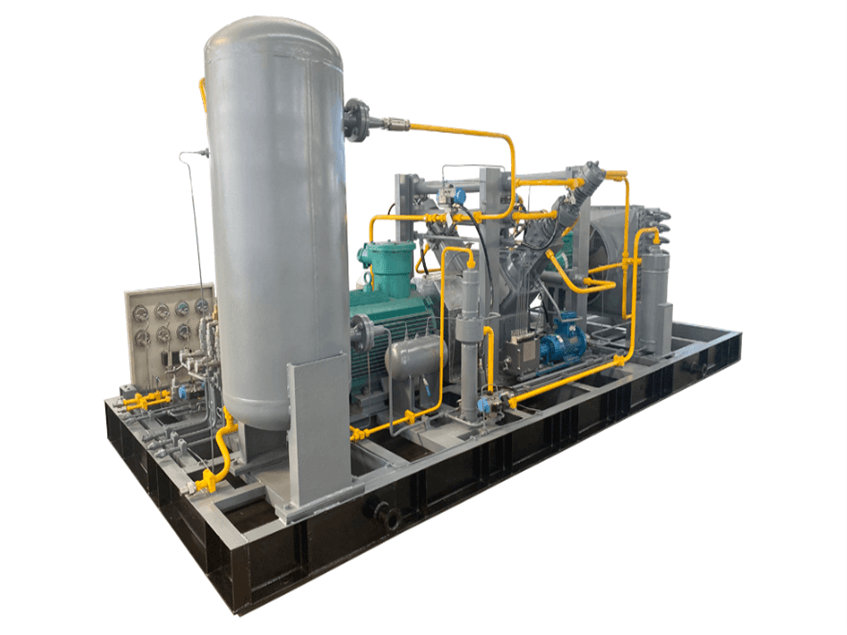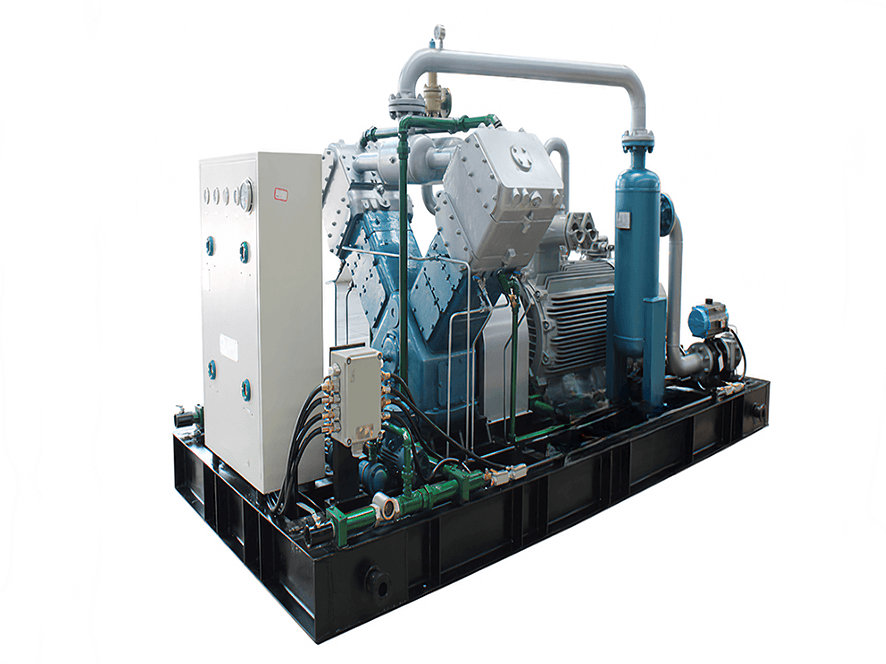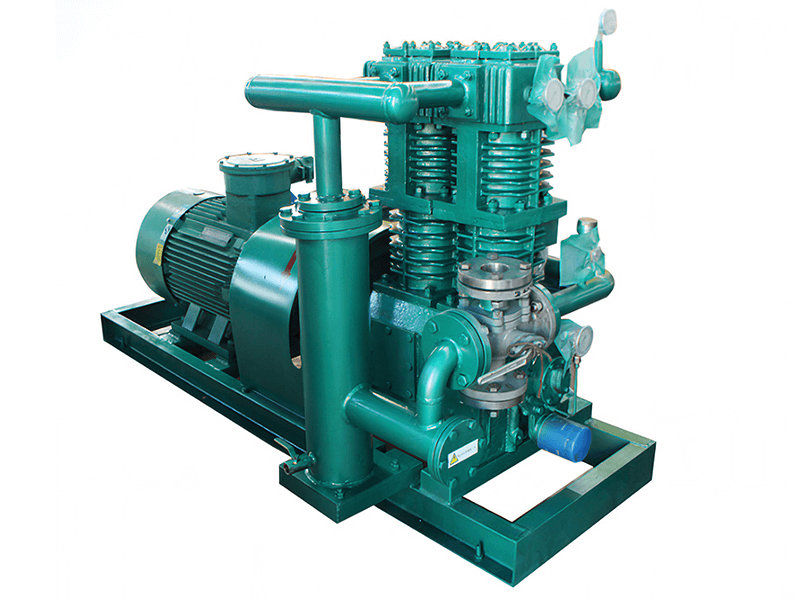Chlorine compression is necessary in various industrial processes and applications where chlorine gas is utilized. Here are some reasons why chlorine compression is needed:
1. Transportation and Storage: Chlorine gas is commonly transported and stored in compressed form to ensure its safe handling and containment. Compressing chlorine allows for higher storage densities, reducing the volume required for transportation and storage. It also helps maintain the gas in a stable state and prevents leaks or vaporization during transport.
2. Water Treatment: Chlorine gas is widely used for water disinfection in municipal water treatment plants and swimming pools. Compression is required to pressurize chlorine gas and inject it into water supplies at the desired dosage levels. Compressed chlorine efficiently mixes with water, allowing for effective disinfection and the elimination of harmful microorganisms.
3. Chemical Manufacturing: Chlorine gas is a key raw material in the production of various chemicals, including PVC (polyvinyl chloride), bleach, solvents, and chlorinated organic compounds. Compression is necessary during the manufacturing process to pressurize chlorine for chemical reactions, synthesis, and purification steps. It ensures the efficient use of chlorine gas and enables precise control over reaction conditions.
4. Refrigerants: Chlorine-based refrigerants, such as chlorofluorocarbons (CFCs) and hydrochlorofluorocarbons (HCFCs), have been widely used in the past but are being phased out due to their ozone-depleting and global warming potential. However, compression was necessary for these refrigerants to increase their pressure and temperature for heat exchange processes. Nowadays, alternative refrigerants with lower environmental impact, such as hydrofluorocarbons (HFCs), are used, and compression is still required for their effective implementation.
5. Chemical Feedstock: Chlorine gas serves as a feedstock in the production of various chemicals, such as chlor-alkali products like sodium hypochlorite, hydrochloric acid, and sodium chlorate. Compression is needed to ensure the consistent supply and controlled delivery of chlorine gas to these manufacturing processes.
6. Pulp and Paper Industry: Chlorine gas is used in the pulp and paper industry for bleaching processes to remove color and impurities from wood pulp. Compression is necessary to pressurize chlorine gas and introduce it into the bleaching reactors or towers. Compressed chlorine gas ensures effective bleaching and improves the quality and brightness of the final paper products.
7. Pharmaceuticals and Chemical Research: Chlorine gas is utilized in pharmaceutical manufacturing and chemical research for various applications. Compression is required to handle and deliver chlorine gas to reaction vessels, reactors, or laboratory equipment for chemical synthesis, pharmaceutical production, or experimental investigations.
8. Petrochemical Industry: Chlorine gas is used in the petrochemical industry for the production of various chemicals, such as vinyl chloride monomer (VCM), which is a precursor to polyvinyl chloride (PVC). Compression is essential to pressurize chlorine gas for reactions and processes involved in the production of these petrochemicals.
9. Metal Processing: Chlorine gas is utilized in metal processing applications, including the extraction and refining of metals like titanium and zirconium. Compression is necessary to deliver chlorine gas to the reaction chambers or furnaces where it interacts with metal ores or compounds, facilitating extraction or purification processes.
10. Waste Treatment and Disposal: Chlorine gas is used in waste treatment facilities for disinfection and deodorization purposes. Compression is employed to pressurize chlorine gas and inject it into waste streams or treatment systems to kill pathogens and control odors.
11. Textile Industry: Chlorine gas finds application in the textile industry for bleaching and chemical treatment of fabrics and fibers. Compression is required to deliver chlorine gas to the textile processing units for effective bleaching, dye removal, and color treatment.
12. Food and Beverage Industry: Chlorine gas is used for disinfection and sanitation purposes in the food and beverage industry. It is employed in water treatment systems, cleaning processes, and equipment sterilization. Compression is necessary to pressurize chlorine gas and ensure its controlled and precise delivery for effective disinfection.
13. Pharmaceutical Industry: Chlorine gas is utilized in pharmaceutical manufacturing for various applications, including sterilization and disinfection. Compression is required to deliver chlorine gas to sterilization chambers or processes where it is used to eliminate microorganisms and ensure product safety.
14. Power Generation: Chlorine gas is used in power plants for water treatment and cooling system disinfection. Compression is employed to pressurize chlorine gas and inject it into the water systems to control bacterial growth, biofouling, and corrosion.
15. Laboratory Research: Chlorine gas is utilized in laboratory research for a range of applications, including chemical synthesis, experimental investigations, and analytical chemistry. Compression is required to handle and deliver chlorine gas to laboratory equipment or reaction vessels for controlled and precise experiments.
These are some examples of applications and industries where chlorine compression plays a crucial role. Proper handling, storage, and safety measures must be followed when working with chlorine gas, and specialized equipment designed for chlorine compression should be used to ensure safe and efficient operations.



